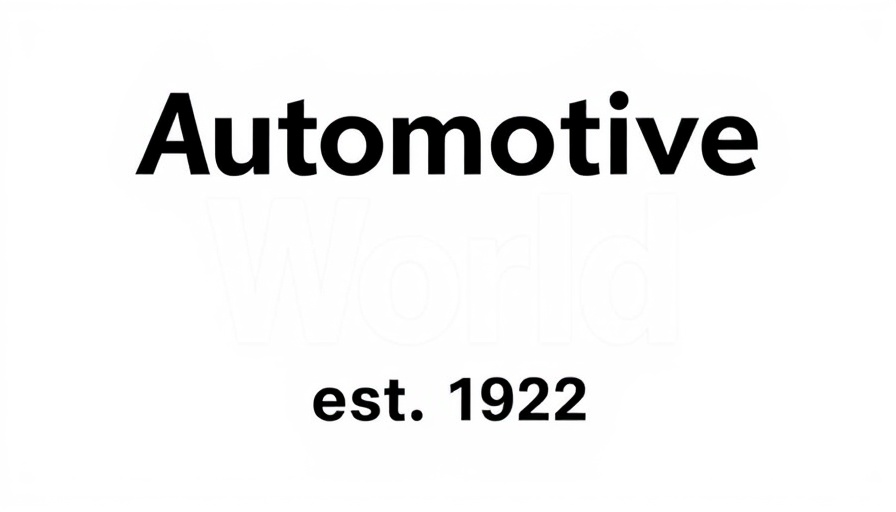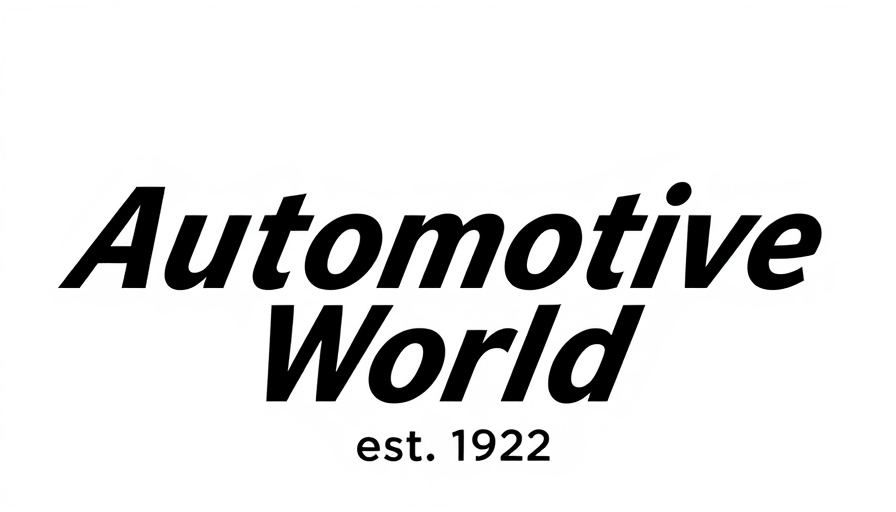
Understanding the Economic Impact of Tariffs on Car Prices
Recent developments in the U.S. automotive industry have raised significant concerns about vehicle pricing, especially following President Trump's announcement of a 25 percent tariff on foreign-built cars. This decision marks a notable shift in trade policy aimed at promoting domestically manufactured vehicles, yet it carries implications that extend beyond mere patriotism—directly affecting the wallets of consumers nationwide.
Fresh Off the Pandemic: Challenges in Vehicle Affordability
As the automotive market began its recovery from the pandemic-related slump, the timing of these tariffs poses a critical junction for consumers and dealers alike. Jessica Caldwell from Edmunds highlights how automakers may be compelled to pass increased costs down the line, further exacerbating already high vehicle prices. The average transaction price of new vehicles reached $47,373 in February 2025, a steep climb amidst ongoing economic pressures.
Your Path to Understanding Tariff Consequences
The tariffs are not just a policy change; they represent a fundamental shift in how vehicle pricing will be structured. Economists suggest that without intervention or innovative solutions, such as cost-absorbing measures from manufacturers, end consumers could be faced with inflated prices. In a market already turbulent from high inflation and rising living costs, this could alienate potential buyers, especially first-time car owners.
The President's Bold Stance: Aiming for Domestic Prosperity
President Trump's remarks regarding the tariffs reveal a clear agenda: bolster American manufacturing while disregarding foreign denominations. Likening these tariffs to an economic booster shot, he champions domestic production. While this might ignite growth in U.S. factories, it raises questions about long-term sustainability and consumer behavior. Will American buyers genuinely shift their loyalty to costly domestic cars over more affordable foreign options?
Accounting for Consumer Sentiment: How Will Buyers React?
Reactions among potential car buyers to rising prices and tariffs are mixed. Some consumers may find a sense of national pride in purchasing American-made cars but will also weigh these options against affordability. As costs skyrocket, particularly for individuals already squeezed financially, automakers must tread carefully. Strategies like flexible financing options or enhanced warranty programs might play a pivotal role in winning over skeptical buyers.
Concluding Thoughts: The Road Ahead for Car Buyers
As the automotive industry grapples with shifting economic landscapes spurred by tariffs, dealership owners and GMs must adapt swiftly to changing consumer expectations. Understanding these dynamics is crucial to formulating strategies that would enable dealerships to thrive in a competitive environment. Navigating these turbulent waters will require keen insights and potentially innovative approaches tailored to evolving consumer behavior.
 Add Row
Add Row  Add
Add 

 Add Row
Add Row  Add Element
Add Element 




Write A Comment